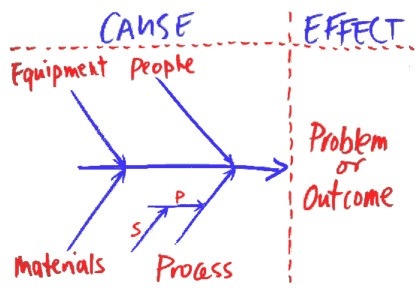For the last two years I have had the privilege of walking with InterVarsity staff as they carry out the calling God has placed on their lives–to serve as missionaries to faculty and students at premiere universities. Over the course of my eight years on staff with InterVarsity, I have come to the conclusion that being a campus staff is a job that requires brutal focus, significant discipline, and persistence in discerning prayer.
There are an almost unlimited number of opportunities to ‘spend’ time and energy in something that is related to an element of your job description. Sometimes the thing that seems like the most inefficient use of time will be thing that God is inviting you to do–like, leaving a couple of hours free to prayerfully wander the campus and engage in conversation with staff, students, visitors, anyone who comes into your path. At other times, doing that may not be a wise and faithful use of your time.
One of the persistent realities that I have encountered, as have other staff, is that it seems almost impossible to plan a realistic amount of time to tackle an important project. Stress ensues as well as a sense of guilt at the thought of the missing the deadline. Not a fun way to live.
It turns out that this is an almost universal problem–it even has a name, Hofstadter’s law. The law simply states: “any task that you are planning to complete will take longer than you plan, even when factoring in Hofstadter’s law.” Read a piece in the Guardian on Hofstadter’s law.
So what’s the solution? It seems that there’s something about our brains that almost necessitate that we miscalculate the amount of time it will take to complete a task. There seems to be no way around it. The best way to account for this is to avoid trying to plan using estimates of time. Instead, try to keep a casual record of how long it took you to do a project like in the past. When you come around to a similar project, don’t plan it out step-by-step as a way to budget time. Simply appeal to past projects that you have actually successfully completed.
An example from my own ministry…
Ministry newsletter.
Initially I insisted that I could write, edit, and send a ministry newsletter in one day. After all, there’s not too much copy in a newsletter. In reality, the limitations of space and the desire to communicate effectively in a small number of words means that I need to budget two days. I figured that out after several years of always being annoyed at how long it took to get my newsletters out. If the letter is one of the two hard copy versions I send out then I add an extra day. Note: on newsletter days I am still accessible phone and may have meetings scheduled–the main project I’m working on, however, is the newsletter.
In your work, how do you get around Hofstadter’s law?


But the InterVarsity FD Manual SAYS it will only take one day. It’s in print and everything!
I don’t think you can get around Hofstadter’s Law, but something I’ve learned to do is occasionally take an honest assessment of what I have accomplished, including “interruptions” like phonecalls and emails, as well as “unproductive” time like reading and relationship-building. I almost always find that I’ve done more than I realized. Further, when I truly have wasted time (“is *that* how long I played Kingdom Rush? Ouch.”), I try to remind myself that the time is gone – in a good way – and that feeling guilty or angry can’t bring that time back; it can only waste more time.
LikeLike
Good thoughts Mike. Thanks! I’ve spent too much time over the years being upset with what I didn’t get done!
LikeLike